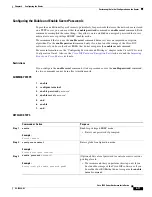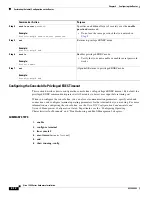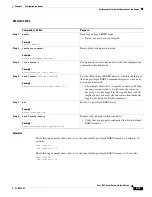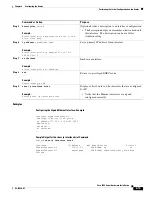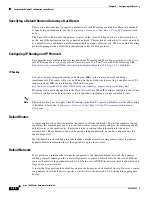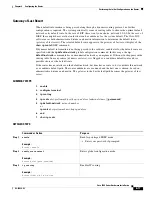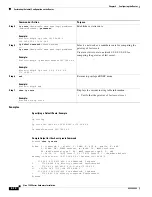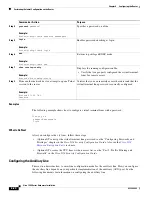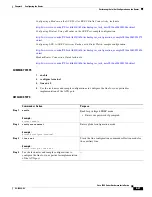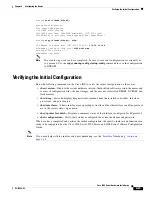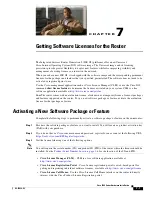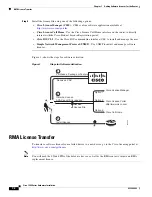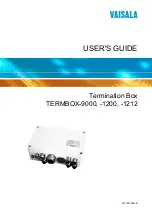
6-25
Cisco 1900 Series Hardware Installation
OL-19084-02
Chapter 6 Configuring the Router
Verifying the Initial Configuration
Router#
show {flash0|flash1}:
System flash directory:
File Length Name/status
1 4137888 c3900-c2is-mz
[4137952 bytes used, 12639264 available, 16777216 total]
16384K bytes of processor board System flash (Read/Write)\
Router#
copy {flash0|flash1}: tftp:
IP address of remote host [255.255.255.255]?
172.16.13.110
filename to write on tftp host?
c3900-c2is-mz
writing c3900-c2is-mz !!!!...
successful ftp write.
Note
To avoid losing work you have completed, be sure to save your configuration occasionally as
you proceed. Use the
copy running-config startup-config
command to save the configuration
to NVRAM.
Verifying the Initial Configuration
Enter the following commands in the Cisco IOS to verify the initial configuration on the router:
•
show version
—Displays the system hardware version; the installed software version; the names and
sources of configuration files; the boot images; and the amount of installed DRAM, NVRAM, and
flash memory.
•
show diag
—Lists and displays diagnostic information about the installed controllers, interface
processors, and port adapters.
•
show interfaces
— Shows interfaces are operating correctly and that the interfaces and line protocol
are in the correct state—up or down
•
show ip interface brief—
Displays a summary status of the interfaces configured for IP protocol.
•
show configuration—
Verify that you have configured the correct hostname and password.
When you have completed and verified the initial configuration, the specific features and functions are
ready to be configured. See the Cisco 1900 Series, 2900 Series, and 3900 Series Software Configuration
Guide.
Note
If you need help with the interface and port numbering, see the
“Interface Numbering” section on
page 1-14
.

